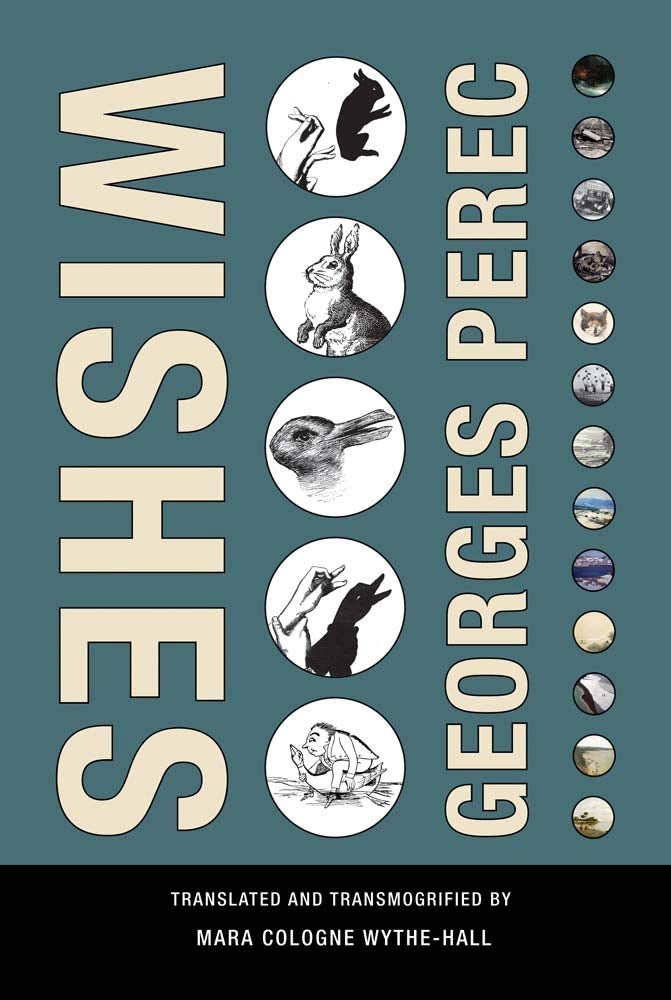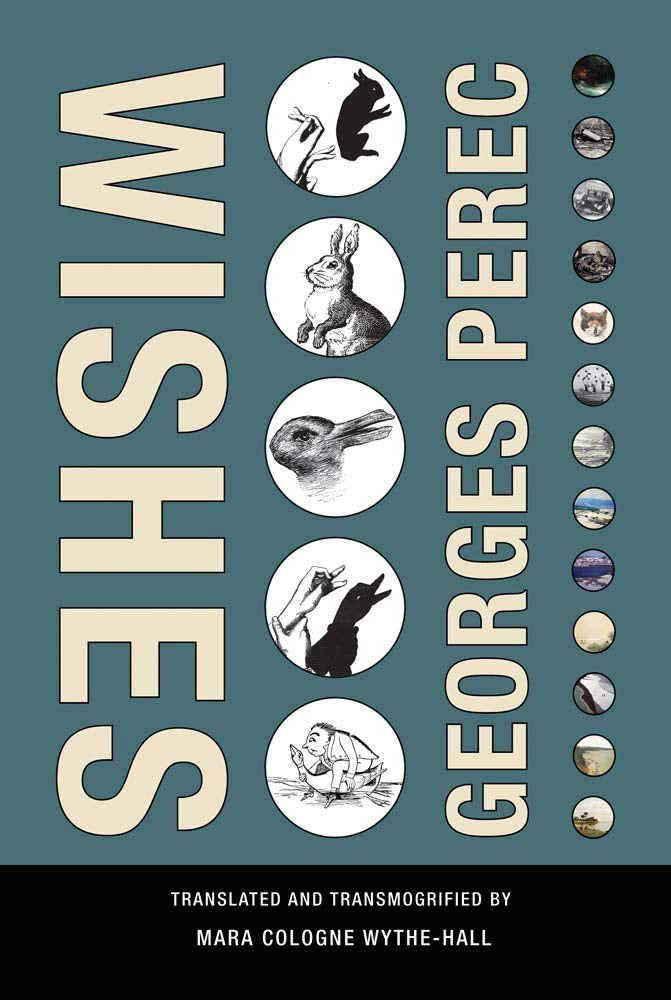Wishes
Wishes
Georges Perec
Couldn't load pickup availability
Translated, with an introduction, by Mara Cologne Wythe-Hall / July 2018 / 6 x 9, 240 pp. / 978-1-939663-33-7
“In the beginning was the pun,” Samuel Beckett once wrote. And so it was that Georges Perec brought the good word to his friends and acquaintances on a yearly basis as an expression of his best wishes for the New Year. Wishes gathers together these ten pamphlets of homophonic wordplay that Perec sent out from 1970 until his death in 1982, originally printed at his own expense in limited quantities. This paean to the pun consists of a series of short prose pieces—alternately humorous, enigmatic, banal, and absurd—each concluding with a list of the everyday bits and pieces of language lying at their root. English proverbs, Latin phrases, the names of composers, jazz artists, filmmakers, crime novelists, and book titles are all fodder for Perec’s homophonic translations in which the meaning of words gives way to their sounds, which in turn generate new meanings (and in turn, new texts): John Coltrane turns into an anecdote about a wanderer with severe ring around the collar; Michelangelo Antonioni’s first movie transforms into a prophecy of a murderous holiday; the phrase “All’s well that ends well” becomes a pregnant cow named Alice hailed by a drunk Satan; and Maurice Ravel proves to be a warning against corpses with a predilection for root vegetables.
These texts and their marriage of sound to meaning present a fundamental challenge to any attempt at translation, and bring into stark relief the choices translators are often forced to make in their endeavors. This English edition sidesteps such choices by offering two alternate translations: a traditional one focused on the literal semantic content of Perec’s texts, and another (here termed a “transmogrification”) focused on their formal phonological play.
Wishes presents a relentlessly playful Perec, and demonstrates language’s endless urge to undermine its own meaning: a rebellious phonology where words don’t just make love in the Surrealist tradition, but actually procreate.
Georges Perec (1936–1982) was a French novelist, essayist, and filmmaker whose linguistic talents ranged from fiction to crossword puzzles to palindromes. Winner of the prix Renaudot in 1965 for his first novel Things, and the prix Médicis in 1978 for his most acclaimed novel, Life A User’s Manual, Perec was also a member of Oulipo, a group of writers and mathematicians devoted to the discovery and use of constraints to encourage literary inspiration. One of their most famous products was Perec’s own novel, A Void, written entirely without the letter “e.”
Press
“[A] must for fans of Perec, the Oulipo, and anyone interested in translation (since the translation-issues here are truly multifarious).”
—M. A. Orthofer, The Complete Review


